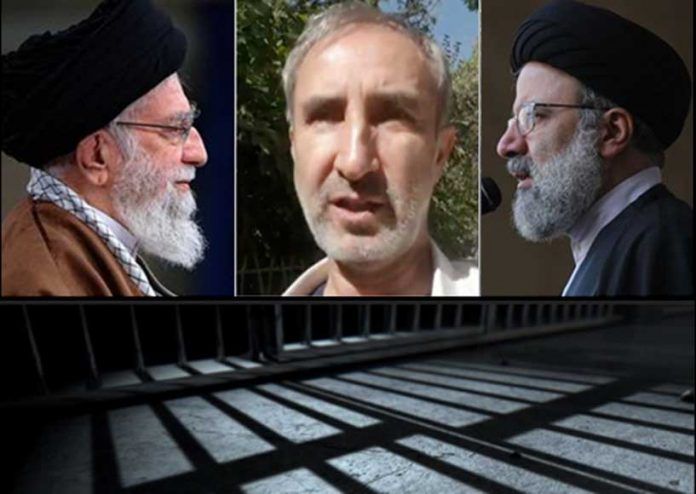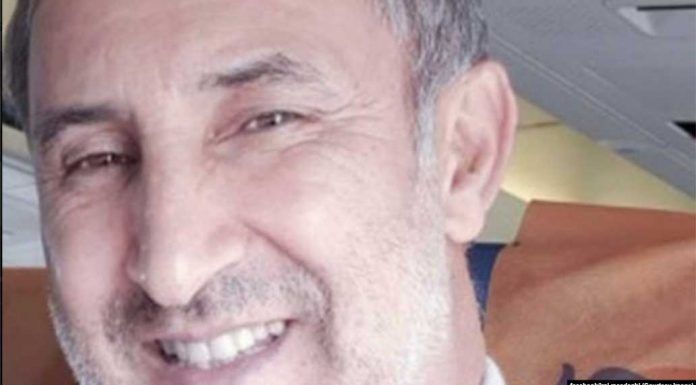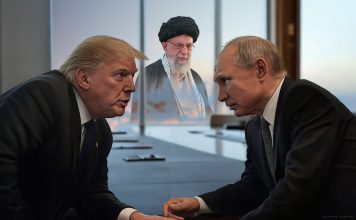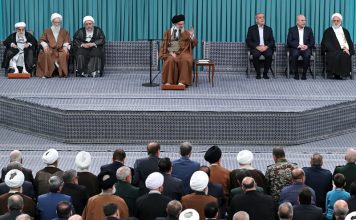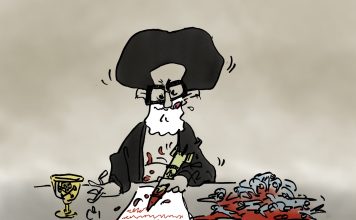By Kayhan Life Staff
The Islamic Republic News Agency (IRNA) published an article on May 22 with the headline “A Dangerous Game That Is Beneath Swedish Security Service (SAPO),” warning the Swedish government that the imprisonment of former Iranian official Habib Nouri, who is convicted of “war crimes,” could have “serious consequences for the Swedish security service.”
The article came out nearly two weeks after Iran’s May 6 execution of the Swedish-Iranian dissident Habib Farajollah Chaab, who was convicted of leading the Arab Struggle Movement for the Liberation of Ahwaz (ASMLA), and accused of attacks including one on a military parade in 2018 that killed 25 people.
Iran Hangs Swedish-Iranian It Convicted Over Attack That Killed 25 People
On July 14, 2022, a court in Stockholm found Hamid Nouri, an Iranian official, guilty of “crimes against humanity,” “war crimes,” and “premeditated murder,” sentencing him to life in prison, which in Sweden means serving a maximum of 25 years.
Under Swedish law, Nouri could be eligible for release after serving two-thirds of his sentence, meaning in about 17 years’ time.
The court found that Nouri, “jointly and in collusion with others, took part in the committing of the criminal acts.” It also ordered Nouri to pay 1.2 million SEK ($117,302) in fines.
The verdict marked a momentous day for Iranians seeking justice for crimes committed by the Islamic Republic of Iran in the past 43 years.
Nouri allegedly supervised the mass executions of political prisoners in the summer of 1988, when he was reportedly a deputy prosecutor at Iran’s Gohardasht Prison in Karaj, west of Tehran.
ANALYSIS: Hamid Nouri’s Life Sentence Is A Condemnation of Iran
Nouri was purportedly working under Judge Mohammad Moghiseh (Haj Nasser and Naserian), a member of the “death committee” which allegedly expedited political prisoners’ executions in Gohardasht Prison starting in August 1988.
The “death committee” was formed following an order by Ayatollah Ruhollah Khomeini, the founder of the Islamic Republic, to review prisoners’ sentences and expedite their executions.
The three-member panel of judges, including current Iranian President Ebrahim Raisi, reportedly spent only a few minutes reviewing each case before sentencing a prisoner to death.
Swedish police arrested Nouri under international law at Stockholm airport in 2019 as he arrived to visit relatives, following a complaint by several prisoners who had survived the 1988 mass executions at Gohardasht Prison.
“SAPO is a Swedish government agency which ostensibly operates under the auspices of the Judiciary and the government,” IRNA said. “However, it is a powerful and independent organization of this Scandinavian country.”
EXCLUSIVE – U.N. Expert Backs Probe into Iran’s 1988 Killings, Raisi’s Role
IRNA’s report highlighted the role of Iraj Mesdaghi and Hamid Ashtari — two dissidents and plaintiffs in the case against Nouri leading to his eventual arrest — alleging that they worked with SAPO to “lure him into the den of wolves.”
“The Swedish security and spy agency has started a dangerous game against the Iranian nation and the Islamic Republic,” IRNA warned. “Stockholm will pay a heavy price for this game. The Swedish security service will pay a heavy price for the government holding dozens of unlawful hearings against Hamid Nouri, irrespective of whether social democrats or conservatives govern the country.”
On April 29, Kayhan London reported in a tweet that the U.S.-based Tavaana [E-Learning Institute for Iranian Civil Society] had published ‘Faithful Crime: A Review of the Criminal Trial of Hamid Nouri’ [not the official English translation of the book] in three parts. The book’s author is the Sweden-based lawyer Nayereh Ansari, the tweet said; it included a 22-minute interview with Ms. Ansari.
IRNA speculated that there could be several reasons for SAPO’s “hostile” approach to the Islamic Republic, including “the exposure of Swedish spies and operatives in Iran, especially Ahmad Reza Djalali.”
Dr. Djalali, a Swedish-Iranian dual national, has been in prison in Iran since 2016 on espionage charges. He was sentenced to death in October 2017.
IRNA alleged that the court case against Nouri was an “organized and targeted security measure” by Sweden, adding: “Undoubtedly, it was not planned only by one or more people linked to the anti [Islamic] Revolution movement.”
“One tactic used by SAPO agents, following the trial of Hamid Nouri, was to oversimplify the case in the Western media, and especially benefiting from false and harmful testimonies of Monafeghin members [People’s Mojahedin Organization of Iran],” IRNA alleged.
“Undoubtedly, SAPO cannot and will not explain its irresponsible and illegal role in fabricating this case,” IRNA added. “Although SAPO started this game, it is not the one who will finish it.”
The following day, IRNA published another report alleging that SAPO was a security arm of the U.S.
“All American envoys in Stockholm, without exception, play a significant role in spying on Swedish and European citizens,” IRNA alleged. “The U.S. Embassy in the Swedish capital has operated as a command center in Scandinavia and continues to do so.”
The Swedish daily Dagens Nyheter (news of the day) published an article on Jan. 8 with the headline “How a War Criminal Was Lured to Sweden: A Trap Set by Iraj Mesdaghi,” highlighting the significance of Nouri’s trial.
“The trial of Hamid Nouri is a historical event and can be traced directly to the power centers in Iran,” the paper said. “The current [Iranian] President Ebrahim Raisi has been named as a leader of the so-called ‘Death Committee,’ a body that made life and death decisions for prisoners.”
Iraj Mesdaghi is an Iranian writer and human rights activist in Sweden who was imprisoned by the Islamic Republic from 1981 until 1991. Mesdaghi survived the 1988 mass executions of political prisoners and dissidents.
“The years have passed, but I cannot forget. I live, but my comrades were murdered. Those who killed them must be held accountable,” Dagens Nyheter quoted Mesdaghi as saying.
“He sprung the trap that lured torturer Hamid Nouri to Sweden, where he was convicted of war crimes,” the paper added.
ANALYSIS: How Hostage Taking Is An Integral Part of Iran’s Foreign Policy

